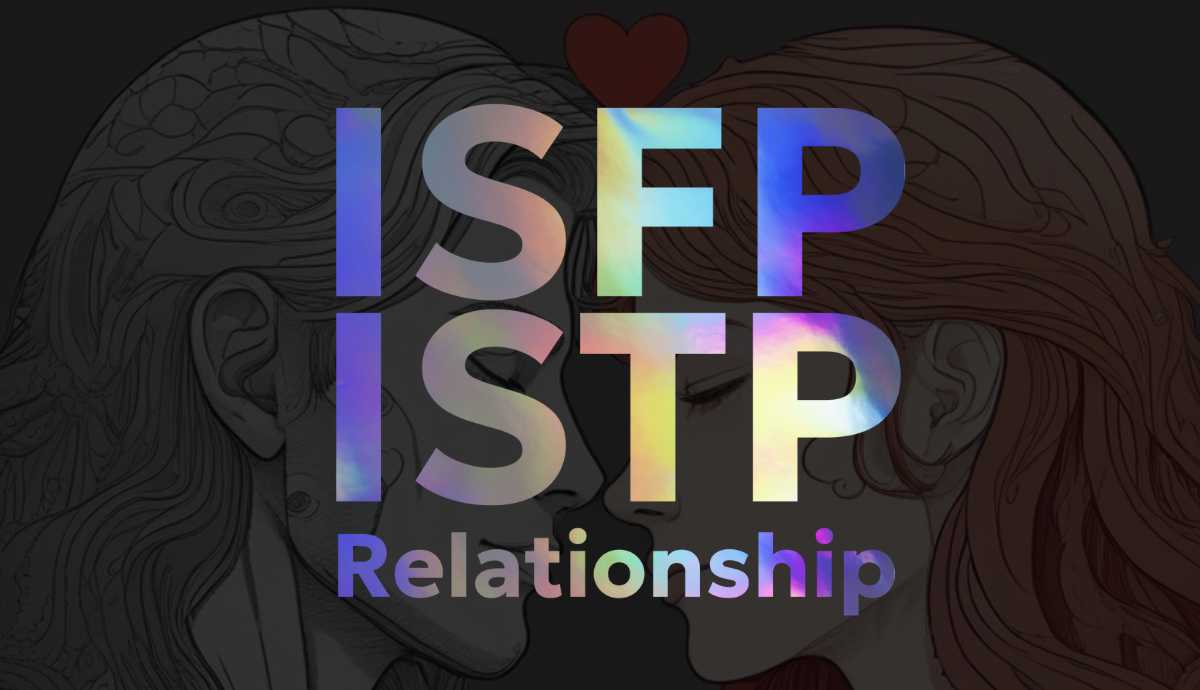ISFP is one of the 16 MBTI personalities and forms part of the temperament group known as the “artisans” along with ESFP, ESTP and ISTP. The ISFP has been described as a “tactical composer”, “artist” and “adventurer”. Among their strengths is the ability to adapt and improvise, creative expression, and open-mindedness. As with each of the other MBTI personalities, ISFPs contend with their share of obstacles. Here is a look at 7 weaknesses associated with being an ISFP.
1. Operating on Schedule
ISFPs have an appetite for spontaneity that can make it difficult for them to regiment their time effectively or faithfully follow a schedule. Until they learn to structure their life more, they can be subject to inconsistent punctuality and fall into the habit of not thinking ahead in anticipation of delays outside their control. Furthermore, because of their unpredictable impulses, ISFPs are prone to abruptly cancelling or changing plans on short notice. Oftentimes, a more advanced notice could have been given, but ISFP didn’t think that far ahead or consider how certain events or potentials might interfere with the rest of their schedule. Additionally, when it comes to deadlines, ISFPs may have a tendency to postpone getting started on tasks until very late where it becomes a rush to the finish line.
2. Planning Ahead
ISFPs tend to live in the moment, chasing a series of instant rewards and immediate gratifications. For the ISFP, short term prospects tend to hold more salience than the long term. Tomorrow is, after all, promised to no one and this could be partly why ISFPs are more willing to focus on what makes them happy right now and deal with life as it comes. ISFPs may not have a very strong sense or vision of what they want their future to look like but likely feel they can shape and sculpt it one day at a time. Furthermore, when they do plan, it may often be that their expectations lack a clear goal or structure for how to go about realizing that goal. ISFPs are inclined to follow more of a rough outline or sketch of a plan rather than a detailed blueprint.
3. Mood Stability
ISFPs have intense emotions that respond strongly to what they experience. Rather than express their feelings outright however, ISFPs tend to sublimate them through an artform or some other medium of expression. Being under stress can affect them in very apparent ways, and cause them to shut down emotionally and shut other people out. Normally chill and non-confrontational, ISFPs can become irascible and quarrelsome. ISFPs need time alone to collect themselves and gather their energies. Physical activities and spending time in the calming ambience of nature can be especially therapeutic for them.
4. Adhering to Rules and Procedures
ISFPs are practical and sometimes unconventional in their approach to tasks. They are not inclined to innovate for innovation’s sake the way Ne users are. However, if they see a clearer more efficient way of doing something, they would be hard pressed to understand why they or anyone else should not do it that way. Standard operating procedures be damned, the Te aspirations of the ISFP lend them an underlying desire to optimize and be efficient in ways that make the most sense to them or the situation at hand. At the same time, they avoid being hemmed in or controlled by external systems they view as rigid. They seek to exercise their individuality and personalized way of doing things sometimes to the point of being rebellious or excessively contrarian.
5. Taking Criticism
ISFPs don’t much care to be subjected to the criticisms or admonishments of others and resist being influenced by them. Because of their sensitivity, it can be difficult not to take most criticisms personally and threaten their self esteem. It can make them feel imposed upon and compel them to show defiance against those who try to put them down, devalue their work or change something essential about who they are. ISFPs can have difficulty separating the constructive and well-intentioned criticism from the mean spirited and pernicious criticism. Their introverted feeling judgement can make them overly protective of their right to be who they are and the sovereignty of their individuality.
6. Being Hard On Themselves
The ISFP can sometimes sell themselves short and downplay the compliments and gratitude they receive from others. ISFPs hold themselves to their own standards and ideals and they avoid comparing themselves to others. They however, can sometimes wrestle with perfectionist tendencies and spend an excess amount of time refining and fine tuning their work seeing it as a reflection or extension of themselves. Pursuing a path of constant growth and improvement is important to them and so feeling a sense of stagnation and regression in their life can put a drag on their spirits and self esteem. They can become dissatisfied with their plight and struggle with feelings of self doubt.
7. Communication
Like ISTP, the ISFP can be a person of few words. That is because their perceiving preference of Se (extraverted sensing) is not very verbal in nature the way Ne (extraverted intuition) is. Ne likes to discuss and work with ideas whereas Se would rather do and experience things. For this reason, verbal skills can often go underdeveloped in ISFPs and this can contribute to the difficulty that others face in trying to get to know them better. ISFPs can be very shy and deprive others of seeing more of their charming spirit.
Want to know your astrology placements? You can generate your astrology chart here with our free birth chart generator tool.
related posts:
- ENFJ Weaknesses – 7 Struggles of Being ENFJ
- ESFJ Weaknesses: 7 Struggles of the ESFJ Personality
- ISTJ Weaknesses – 7 Struggles of Being ISTJ
- 7 Major Weaknesses of the INFP Personality
- ENFP Weaknesses: 7 Struggles of Being ENFP
- INTJ Weaknesses: 7 Struggles of Being INTJ
- INTP Weaknesses: 7 Struggles of being INTP
- 7 Major Weaknesses of the INFJ Personality
- ISTP Weaknesses – 7 Struggles of Being ISTP
- ENTJ Weaknesses – 7 Struggles of Being ENTJ
- 12 Shades of ISFP: MBTI & the Zodiac
- 6 Great Paying Jobs For ISFPs
- American Presidents Ranked By Zodiac Sign - January 20, 2025
- ESTP and ESFP in love: 6 Dynamics of Their Relationship - September 4, 2024
- ISFP and ISTP in love: 5 Dynamics of their Relationship. - August 28, 2024





